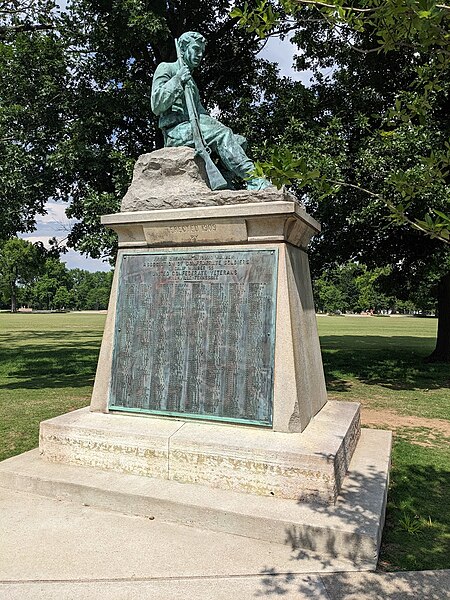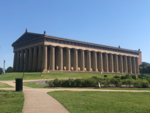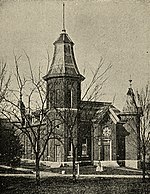Confederate Private Monument
1909 establishments in Tennessee1909 sculpturesBronze sculptures in TennesseeBuildings and structures in Nashville, TennesseeConfederate States of America monuments and memorials in Tennessee ... and 5 more
Monuments and memorials in TennesseeOutdoor sculptures in TennesseeSculptures of men in TennesseeStatues in TennesseeVandalized works of art in Tennessee

The Confederate Private Monument is a bronze sculpture of a private of the Confederate States Army in Centennial Park, Nashville, Tennessee, United States. Designed by George Julian Zolnay, it was commissioned by the Frank Cheatham Bivouac of the United Confederate Veterans in 1903, laid with Masonic honors in 1907, and dedicated in 1909. It was vandalized in June 2019.
Excerpt from the Wikipedia article Confederate Private Monument (License: CC BY-SA 3.0, Authors, Images).Confederate Private Monument
Centennial Park Trail - Centennial Loop Connector, Nashville-Davidson
Geographical coordinates (GPS) Address Nearby Places Show on map
Geographical coordinates (GPS)
| Latitude | Longitude |
|---|---|
| N 36.147880555556 ° | E -86.812608333333 ° |
Address
Centennial Park Trail - Centennial Loop Connector
Centennial Park Trail - Centennial Loop Connector
37235 Nashville-Davidson
Tennessee, United States
Open on Google Maps








